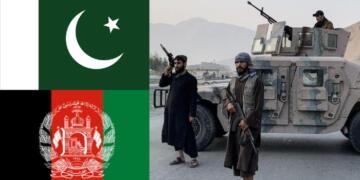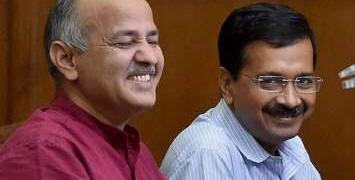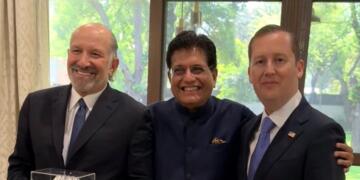On February 2, Ajit Doval, National Security Advisory (NSA), spoke during the launch of Ahmed T. Kuru’s book ‘Islam, Authoritarianism and Underdevelopment’ (Islam Authoritarianism: Underdevelopment- A Global and Historical Comparison) at the book fair in Delhi.
According to NSA Doval, the phenomenon of relations between country and religion is not unique to Islam.
Citing studies in the book by renowned political scientist Ahmet T Kuru, the NSA further said, “At different stages in the history of Islam, this relationship probably waxed and waned. In different societies, particularly during the Abbasid rule, there was a very clear understanding of the roles of the state and the clergy. However, thereafter, an overlap likely emerged.” This has also been the case in the Hindu religion, and “I do not think that there will be any difference in it in the future.”
Indian NSA Ajit Doval, says “we should not allow our brains to be imprisoned. If you don’t introspect you lose time and direction. If done too late then you tend to lag behind.”
Full address at World Book Fair earlier today https://t.co/YaMo36n0zL pic.twitter.com/i8X1TIJBIu
— Sidhant Sibal (@sidhant) February 2, 2025
Doval said that conflicts are inherent in any ideology or country’s existence. It is essential to be competitive in thoughts and ideology. if they do not compete, they “stagnate and eventually perish.” How we resolve conflicts is important. It is crucial to understand what is the mentality of the society. Free flow of ideas is very important to avoid disputes.
“If we want change and progress, we need to ponder over why some societies have become stagnant. Those societies that could not generate new thoughts, new ideas, think outside the box, or examine things fundamentally probably stagnated at a certain point in time,” Doval said.
He said there is a conflict between your beliefs, ideas, needs, and aspirations. There is even conflict with other humans, God and society. You may have more than one thought yourself, and sometimes you may even think it yourself.
The NSA further stated that religion-based conflicts are inevitable and emphasized the need for resolving conflicts between the state and religion.
In Sanatan Dharma, such conflicts were resolved through meditation and shastrarth–debates among scholars and learned men from competing schools of thought or religions, he said.
There were different views in different parts of the world. Buddhism came, and then it conflicted with Sanatana Dharma or Hinduism. Again, this was resolved through debate. In those times, debates went on between thinkers and scholars for several days and sometimes months. There was a many-day dialogue between Mandan Mishra and Adi Shankaracharya regarding understanding the concept of God and man. Hence, the way of resolving that conflict was different from the way of conflict resolution in the country. Doval said that when there is conflict in the country, it moves towards war. However, Doval opined that it is important to allow the free flow of thoughts and avoid stagnation to prevent conflicts.
“Perhaps some of you might know this. The basic idea of the principle of the printing press originated in the Ottoman Empire. Gutenberg invented this thing in Germany in the 14th century. At that time, its biggest opponent was the clergy. He did not want ideas to spread. They felt that they had a monopoly on this. However, the fatwas that were issued were based on the idea that Islam would be misinterpreted and presented in a way that is not its true meaning. After 300 years, Islamic countries decided to adopt the concept of printing and books. Then, he felt that his views could not be broadcast. They could not be delivered to the people.” Doval said that introspection is critical.
“When you lose time, you fall far behind. The direction of change and the speed of change are both important. If you do it too late, you’ll probably fall far behind. He said that efforts should be made to see how the society can develop itself and improve itself.”
Speaking on the occasion, former Union minister and author MJ Akbar argued that more than democracy, Muslims need to revert to a knowledge-based society, as it was during the golden period of Muslim rule. He said the decline of Muslim empires occurred because they stopped sharing knowledge.
According to him, the real problem Muslims face is their inability to come to terms with modernity and understand the concept of the nation-state.
There has always been a debate on religion and state. The question of the state first, or the religion, has existed since the inception of the nation-state. However, Islam has historically sided with the latter.
Even Dr Bhim Rao Ambedkar has previously pointed out that “The brotherhood of Islam is not the universal brotherhood of man. It is the brotherhood of Muslims for Muslims only.”
Also Read: A Shield for Protecting Islamism? Rape Jihad triggers intense debate over Islamophobia
However, the idea of a common brotherhood is an important pillar of statehood.
In the same way, Ambedkar once said, “Islam is said to bind people together, but this is only a half-truth. For Islam divides as inexorably as it binds. Islam is a close corporation, and the distinction that it makes between Muslims and non-Muslims is a very real, very positive, and very alienating distinction.”
Hence, if someone has a clear distinction between “us and them”, they may lack a sense of togetherness, which is very important for a sense of oneness. If there is a lack of oneness, one may not feel attracted towards the idea of state.

























